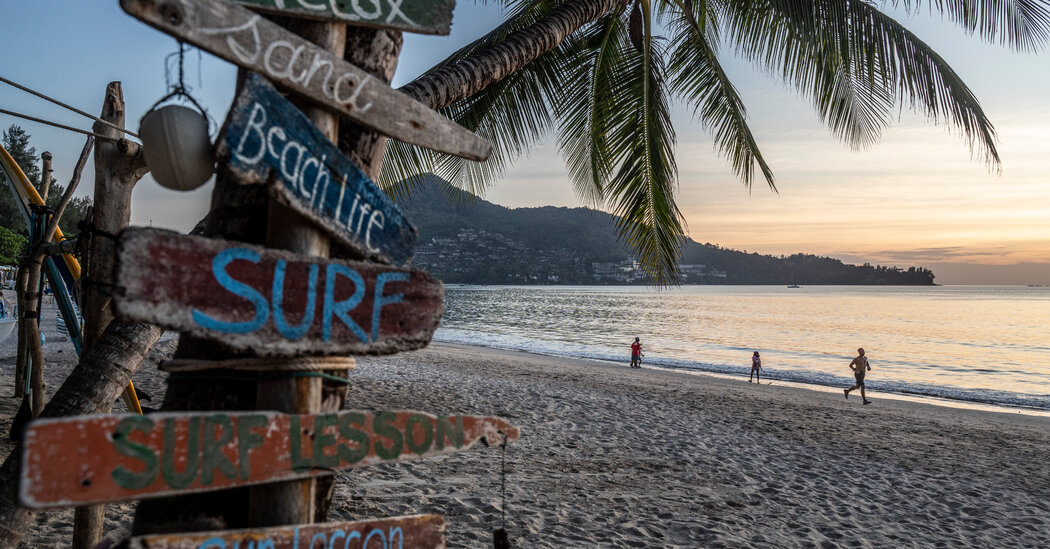“Unforgettable experiences are in the making,” teases an Instagram post from Feb. 13 liked by more than 80,000 people. The photo offers a glimpse of an empty white-sand beach, azure waters, and the barely visible roofs of buildings immersed in a lush landscape of trees. “We are eager to welcome new guests to our resort in Thailand.”
Obscuring the view of the resort: a film clapboard emblazoned with a coral-colored flower logo and the words, “White Lotus Resort & Spa.”
White Lotus resorts, of course, exist only in the fictional world of HBO’s hit hospitality-and-bad-behavior series, “The White Lotus.” The post was HBO’s way of letting fans know that shooting had begun on the series’s third season.
For years it’s been clear that entertainment productions can be big business for locations, but “The White Lotus” has taken the trend to another level, spurring tourism with a show about tourism (at least on its surface), by publicly partnering with tourism. After two seasons, the biting and delectable social satire has an influence that far transcends its many golden statuettes and endless supply of memes. To the travel industry, it can turn a season’s region into an “it” destination, drawing international visitors to the White Lotus stand-ins (the Four Seasons Resort Maui at Wailea in Season 1; the San Domenico Palace, Taormina, a Four Seasons Hotel in Season 2), not to mention the surrounding sights.
While Mike White, the show’s creator, was undoubtedly drawn by Thailand’s natural beauty and welcoming people, the Thai government also significantly sweetened the pot. The financial details have not been disclosed (HBO did not comment), but last year the Thai government approved a plan that increased the rebate for international productions to 150 million Thai baht (about $4.5 million). Several months before that, the government announced that for five years it would waive the personal income tax it had been collecting from foreign talent. In other words, Season 3’s cast, which includes Leslie Bibb, Jason Isaacs, Michelle Monaghan, Parker Posey and returning Season 1 favorite, Natasha Rothwell, will not have to pay Thailand to work in Thailand.
What’s at stake for Thailand is clear: pre-Covid, the country was making 3.5 billion Thai baht per year from international productions. After falling during the height of the pandemic, that number hit 6.6 billion baht last year, according to the Tourism Authority of Thailand….
Click Here to Read the Full Original Article at NYT > Travel…
